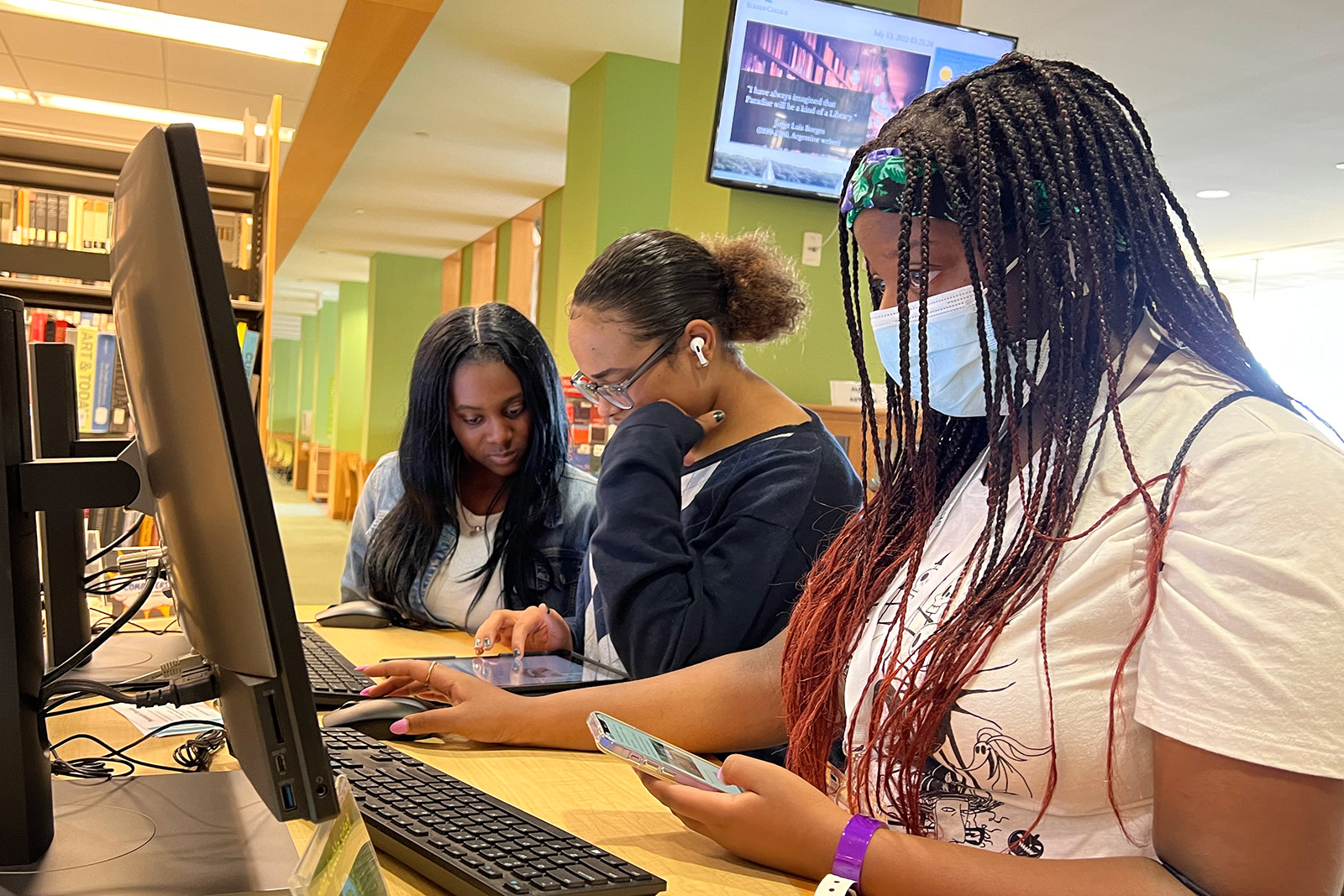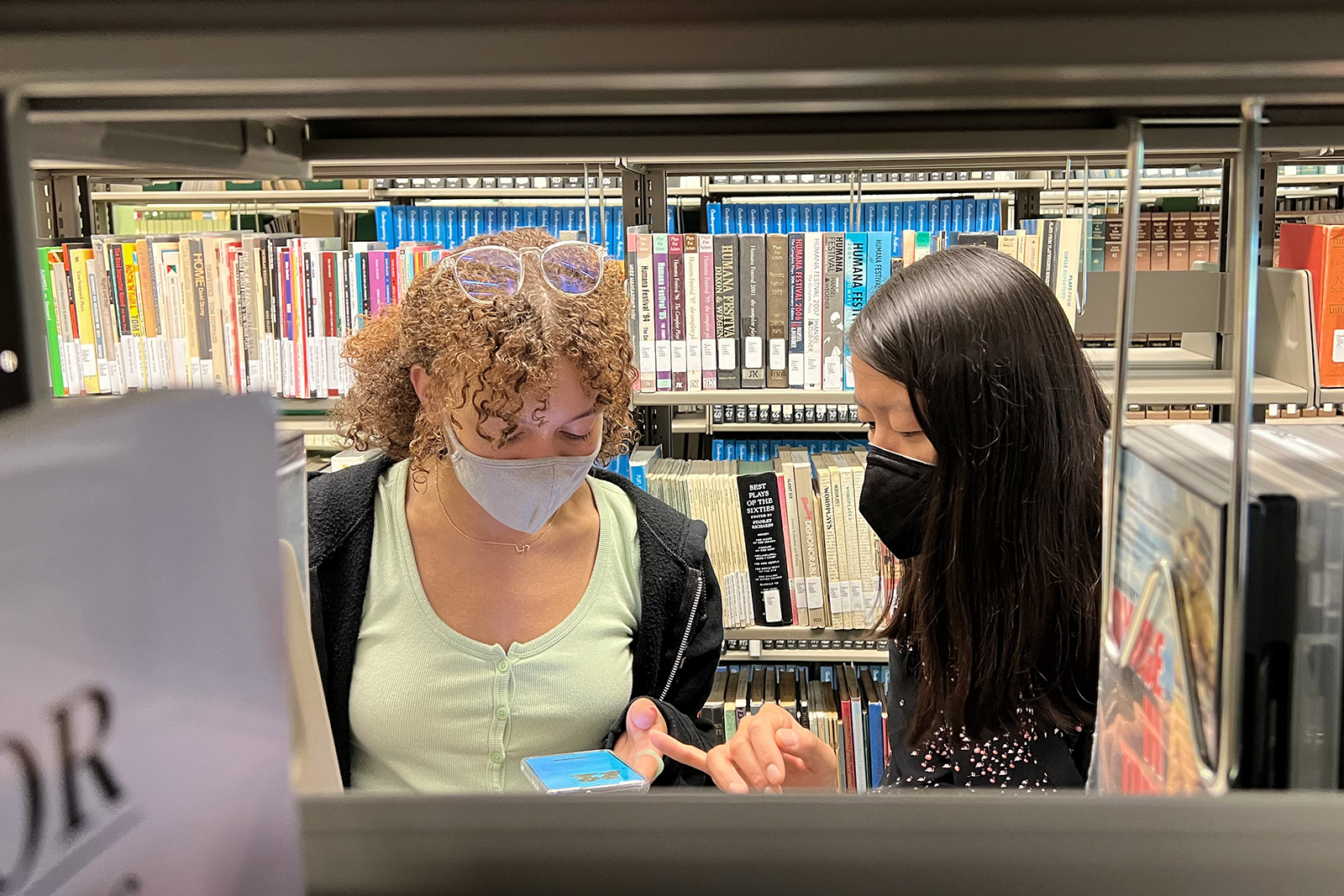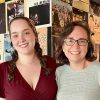His goal is straightforward. Todd Penner, Ph.D., a visiting professor of religious studies at Eckerd College, says he wants to help local high school students from historically marginalized groups get into college. And he wants to do it by teaching them how to best tell their stories.
Penner applied for and recently received a Presidential Innovation Fund grant of up to $5,000.
The Fund, created this year by Eckerd College President Damián Fernández, Ph.D., provides seed grants to launch projects that support research, learning, entrepreneurship and/or community engagement aligned with the College’s strategic plan initiatives and themes.
Not long after receiving the Innovation grant, the United Way Suncoast stepped in to provide a grant that will deliver an additional $96,000 to extend the Eckerd program for another three years.
The grants will support a collaborative project with the College’s Division of Executive and Continuing Education, along with the Take Stock in Children of Florida program and the Cohort of Champions program run by the City of St. Petersburg. The project will develop a new pre-college program titled Telling Stories, Making Meaning: Encountering College and What It Offers. The program will be offered in conjunction with a free weeklong residential liberal arts experience for the students.
Penner has assembled a diverse team of Eckerd faculty and staff to help make the program work. Everyone, it seems, brings something valuable and different to the table: Co-program director Katurah Jenkins-Hall, Ph.D., visiting professor of human development at Eckerd and board chair of the Foundation for a Healthy St. Petersburg; Courtney Smith, executive director of continuing education, conferences and summer school; Kathleen “Kat” Robinson, Ph.D., assistant dean of faculty; Dawn Shedden, Ph.D., history instructor; Erika Spohrer, Ph.D., associate professor of rhetoric; Michael Goyette, Ph.D., visiting assistant professor of classics; and Ronald Porter ’05, Ph.D., director of service-learning.
“The students will spend a week [July 10–15] on campus in the residence hall, and there will be evening events planned for them to attend, including some local speakers from the community who will come to campus to reflect on their experience,” Penner says. “The camp is at no cost to them, and that’s really exciting. The first year is paid for with funding from the City of St. Petersburg.”
More than 40 students registered for this year’s session, nearly all of them students of color, and most of them from nearby Lakewood, Gibbs and Boca Ciega high schools. And thanks to the United Way Suncoast grant, the program can continue for another three years.
“Eckerd College specializes in a problem-centered, place-based, purpose-driven education—hands-on and high-impact—for our times,” says President Fernandez. “This funding from United Way Suncoast gives us the opportunity to extend that experience to students who might not otherwise have an opportunity to attend a small liberal arts college.”
The author of four books, Penner says he initially applied for the Innovation grant “out of my interest in helping students create, nurture and sustain stories of their own. We want them to work on their college application essays, and that involves them telling their stories, working on writing and composition, and going through the college application process. And we all will be helping them. They all will be rising juniors and seniors who are committed to going to college.
“This is a way for Eckerd College to give back,” he adds. “To keep that community engagement and to help facilitate the movement of local students to colleges.”














